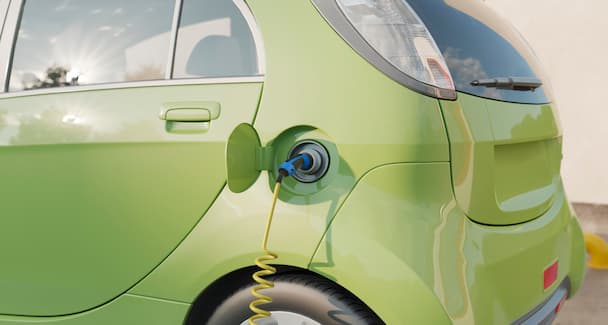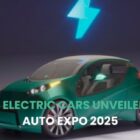EVs are gaining in popularity in India. However, recharging time is a primary concern among existing and potential owners. Companies are trying to upgrade their charging stations to ease such concerns and make traveling faster. EV compatibility and charging stations experience few problems despite progress made in this sector. Hence, before taking your electric vehicle on the road, you must know a few things about charging your car at a station.
EV circuit breakers and stations
EVs like Rivian and Ford F-150 Lighting made owners stop charging them on the roads. They made a loud sound, after which they had to be towed. The owners lacked knowledge that EVs came with circuit breakers, which regular vehicles don’t possess. Excess flow might cause a break trip, circuit interruption, and safeguarding the vehicle from potential damage.
Save charging time
Based on the outlet, such vehicles may take approximately half a day to achieve full charge. Drivers requiring covering long distances feel frustrated about this long charging time. Fortunately, public EV charging stations can reduce this charging time to approximately half an hour or even less. Excess flow in less time is bad news. The vehicle might shut off completely, thus requiring it to be towed.
Charging station warranties
It is a wrong notion that the manufacturers cover these warranties. Check the warranties for coverage. Generally, warranties cover defects arising from regular use. Many manufacturers claim that most EVs malfunction due to car charging stations. Normal and accurate break resulting circuit breaks are not manufacturer-covered. They might not even cover malfunction resulting from broken charging stations. A few stations might be dysfunctional, thus causing improper charge and full EV shutdown.
Dealership battery replacements
Faulty batteries are another concern that consumers should consider. Risks might occur when charging at faulty stations. Battery failure might cause a total loss. In this case, the dealer should make the replacement and not the manufacturer. Few manufacturers might cover this aspect in their warranties. Concerning damages or malfunctions, check the manufacturer’s warranty on EVs.
Where to charge your EV?
You have three options to choose from. You may use a private charger to charge your vehicle at your office or home. The other two are the slower public charging or fast-charging stations. They are called Level 2 stations. Home charging is the cheapest. You can leave your vehicle charger to charge your vehicle the whole night.
Other charging options
A well-devised strategy will be to take your vehicle to a nearby grocery store or gym to fast charge it at the Level 2 station. Such chargers add approximately 30 miles per hour based on car and charger. They are affordable to establish and mushrooming everywhere, especially in office parks and shopping malls. You may avail of Level 2, slower charging, or fast charging stations at different locations.
How to charge your EV when covering a long distance?
You may search for an Electriva charging station in Kanpur to fast-charge your vehicle along the way. The number of fast charging stations is increasing on Indian highways and expressways that EV owners may avail. More are coming in cities, towns, and other places. Download the provider’s app on your Smartphone and know the public charging stations along your route.
Can you enjoy your EV road trip?
The government has subsidized public charging infrastructure to encourage its growth and progress. The objective is to boost EVs on Indian roads and curb pollution. With public charging stations coming up on the highways and other major areas, you can enjoy your road trip on your electric vehicle. You don’t have to bother about getting stranded in the middle of the road.
Time taken to charge the vehicle
A fast charger may take approximately 15 minutes to charge your vehicle. The existing charging infrastructure and EVs are designed to charge fast. If machinery on both sides works to perfection, 15 minutes is more than enough to add 100 miles per hour in contemporary EVs. However, for long road trips, your vehicle should be fully charged.
Other factors to consider
Besides public charging stations on the roads, other factors increase charging time. Most entry-level or older vehicles lack the hardware to accept quick charging. Few might add an odd 2-3 miles a minute. It is irrespective of the charger it is connected to. Other factors like harsh environments might cause issues.
EV range accuracy estimate
The EPA (Environmental Protection Agency) suggests a mixed-route driving routine as an EV range estimate. Moving fast on an expressway or highway will mean a slightly lower observed range than the estimate. Your car’s battery might stretch more than expected when driving on the city roads. Check the EV manufacturer’s manual to know the vehicle’s range capacity.
What happens if your vehicle exhausts its battery?
In the case of the lower range, contemporary EVs calculate and navigate automatically to a nearby charging station. Few vehicles might activate some ‘back-home’ function. Such settings might shut down non-essentials and climate control to move a few miles more. Even if the battery gets dry, the car might drag along slowly and allow you to stop at a safe place. Some markets may provide emergency highway charging services. However, you may need to book a tow truck to drag your vehicle to the nearest charging point.
Efficient method to charge EVs
Use slower networks to enhance the vehicle’s battery life. Avoid driving until empty or fill up always along the route. Use a Level-2 charger at work or home. Plug at 20 percent and top up the battery to 80%. Repeat the process. Most batteries may last approximately 12-15 years. More miles covered and longer duration vehicle owners offset more carbon. It starts growing green as it reaches 200,000 miles.
The cost involved in charging the EV
Charging cost depends on the vehicle size and capacity to charge. Prices may vary by network. Even pricing structures differ. Few companies could charge by time and others by kilowatt hour. Rates may vary depending on the time of charging the vehicle. Some providers offer membership with lower per-unit charging rates against annual or monthly fees. The latter helps save precious money.



